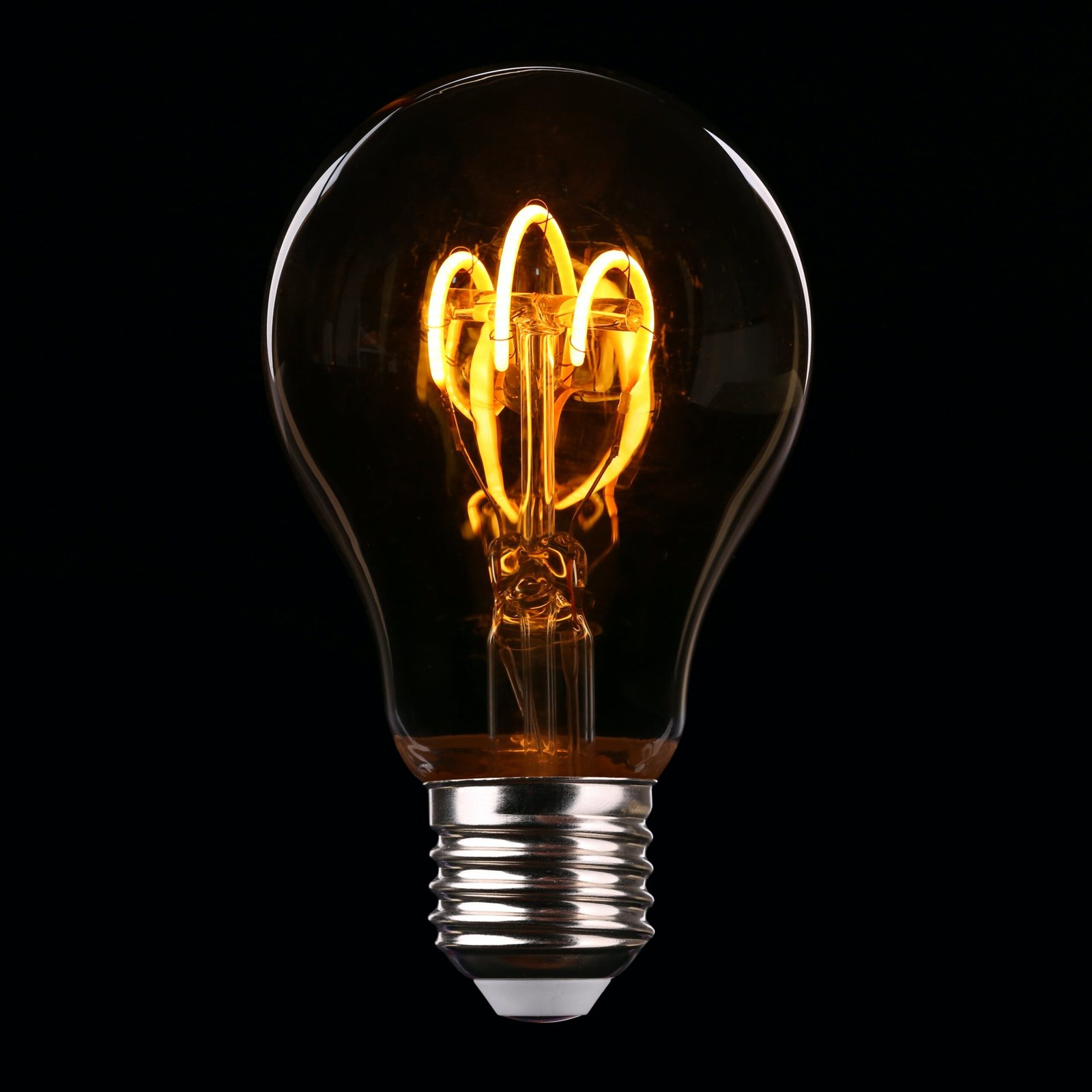If you often find yourself struggling to stay energized throughout the day, you’re not alone. Many people experience dips in their energy levels, leading to fatigue and decreased productivity. But fret not, as there are simple and practical ways to keep your energy levels steady all day long. From making dietary adjustments to incorporating exercise into your routine, this article will explore effective strategies that can help you maintain optimal energy levels and feel more vibrant throughout the day. So say goodbye to the mid-afternoon slump and hello to a more energized and productive you!

Eat a Balanced Diet
To Maintain steady energy levels throughout the day, it’s important to start with a balanced diet. This means ensuring you include complex carbohydrates, increase protein intake, consume healthy fats, and stay hydrated.
Include Complex Carbohydrates
Complex carbohydrates are a great source of energy as they are digested slowly, providing a steady release of glucose into the bloodstream. Foods like whole grains, legumes, and vegetables should be included in your meals to ensure a steady supply of energy throughout the day. Try opting for whole wheat bread, brown rice, and quinoa instead of their refined counterparts.
Increase Protein Intake
Protein is essential for maintaining energy levels as it helps to build and repair tissues. Including lean sources of protein in your meals can help to stabilize blood sugar levels and prevent energy crashes. Foods like poultry, fish, tofu, beans, and lentils are all excellent sources of protein. Aim to have a serving of protein with each meal to keep your energy levels up.
Consume Healthy Fats
Contrary to popular belief, fats are an important part of a balanced diet and can contribute to steady energy levels. Healthy fats, found in foods like avocados, nuts, seeds, and olive oil, provide a slow and sustained release of energy. Including these fats in your meals can help to keep you feeling full and energized throughout the day.
Stay Hydrated
Hydration is key to maintaining steady energy levels. Even mild dehydration can lead to fatigue and a decrease in mental and physical performance. Make sure to drink plenty of water throughout the day, aiming for at least 8 cups. If you find plain water boring, try infusing it with fruits or herbs for added flavor. Additionally, herbal teas and electrolyte-rich beverages can also contribute to your daily hydration needs.
Manage Stress Levels
Stress can have a significant impact on your energy levels, so it’s important to find ways to manage and reduce stress throughout the day. Incorporating stress-relieving activities, getting sufficient sleep, and taking regular breaks can all help to maintain steady energy levels.
Practice Stress-Relieving Activities
Engaging in stress-relieving activities can help to reduce feelings of stress and increase energy levels. Activities like meditation, deep breathing exercises, yoga, and journaling can all help to calm the mind and promote relaxation. Find activities that work best for you and incorporate them into your daily routine to help manage stress throughout the day.
Get Sufficient Sleep
Sleep plays a crucial role in maintaining energy levels. Aim for 7-9 hours of quality sleep each night to ensure your body has enough time to rest and recharge. Establishing a consistent sleep schedule, creating a relaxing bedtime routine, and optimizing your sleep environment can all contribute to better sleep quality and overall energy levels.
Take Breaks
Taking regular breaks throughout the day can help to prevent mental and physical fatigue. Whether it’s a short walk, stretching, or simply stepping away from your workspace for a few minutes, breaks allow you to recharge and refocus. Remember, productivity is not about constantly pushing yourself but finding a balance between focused work and sufficient rest.
Exercise Regularly
Regular exercise helps to improve energy levels and overall well-being. Engaging in a combination of aerobic exercises, strength training, and mind-body activities like yoga or Pilates can help you maintain steady energy throughout the day.
Engage in Aerobic Exercises
Aerobic exercises, such as brisk walking, running, cycling, or swimming, increase blood flow and deliver oxygen and nutrients to your muscles. Regular aerobic exercise can improve cardiovascular health, increase endurance, and boost energy levels. Aim for at least 150 minutes of moderate aerobic activity or 75 minutes of vigorous aerobic activity per week.
Incorporate Strength Training
Strength training exercises, like lifting weights or using resistance bands, help to build muscle strength and endurance. As you gain more muscle mass, your body becomes more efficient at burning calories and maintaining energy levels. Aim for two or more strength training sessions per week, targeting all major muscle groups.
Try Yoga or Pilates
Yoga and Pilates are excellent mind-body exercises that can help improve strength, flexibility, and balance while promoting relaxation and reducing stress. These activities focus on controlled movements, breathing techniques, and mindfulness, which can help you maintain steady energy levels throughout the day. Incorporate yoga or Pilates into your routine a few times a week to reap their benefits.
Limit Caffeine and Sugar
While caffeine and sugar may provide a temporary energy boost, relying on them to maintain energy levels can lead to crashes and dependence. It’s important to limit your intake of caffeinated beverages and sugary foods for sustained energy throughout the day.
Reduce Coffee Intake
While a cup of coffee in the morning can provide a temporary energy boost, excessive coffee consumption can lead to energy crashes and disrupt sleep patterns. Limit your coffee intake to 1-2 cups per day and consider switching to alternatives like herbal tea or decaf coffee later in the day to avoid interfering with sleep.
Avoid Energy Drinks
Energy drinks may provide a quick energy boost due to their high caffeine and sugar content, but the effects are short-lived and can lead to a crash later on. Additionally, energy drinks often contain other stimulants that can negatively impact your health. It’s best to avoid them altogether and opt for healthier alternatives like water, herbal tea, or natural juices.
Opt for Natural Sweeteners
While it’s important to limit overall sugar consumption, when you do indulge in a sweet treat, opt for healthier alternatives to refined sugars. Natural sweeteners like honey, maple syrup, or stevia provide a more gradual and sustained release of energy compared to refined sugars. Remember, moderation is key when it comes to sweeteners, so use them sparingly.

Prioritize Regular Meals
To maintain energy levels throughout the day, it’s important to prioritize regular meals and snacks. This ensures a steady supply of nutrients and prevents hunger-induced energy crashes.
Have a Nutritious Breakfast
Breakfast is often referred to as the most important meal of the day, and for good reason. It provides the fuel your body needs to start the day and can help regulate blood sugar levels. Opt for a balanced breakfast that includes complex carbohydrates, protein, and healthy fats. This could be a bowl of oatmeal topped with fruits and nuts or scrambled eggs with whole grain toast and avocado.
Eat Smaller and Frequent Meals
Instead of relying on three large meals, try dividing your daily food intake into smaller, more frequent meals. This approach can help maintain steady energy levels by preventing blood sugar spikes and crashes. Aim for about 4-6 smaller meals or snacks spread throughout the day, making sure each one includes a balance of whole grains, lean protein, and vegetables or fruits.
Include Snacks
Including healthy snacks between meals can help keep your energy levels stable and prevent overeating during main meals. Opt for nutrient-dense snacks like mixed nuts, Greek yogurt with berries, or carrot sticks with hummus. These snacks provide a good balance of macronutrients and can help satisfy hunger without causing drastic energy fluctuations.
Avoid Skipping Meals
Skipping meals can lead to drops in blood sugar levels, resulting in low energy, poor concentration, and increased cravings. To maintain steady energy levels throughout the day, it’s important to never skip breakfast and plan your meals in advance.
Never Skip Breakfast
Breakfast kickstarts your metabolism and refuels your body after a night of fasting. Skipping breakfast can leave you feeling sluggish and more likely to make unhealthy food choices later in the day. Make it a habit to never skip breakfast and prioritize nutrient-rich foods to set yourself up for a productive day.
Plan Your Meals in Advance
Planning your meals in advance can help you make healthier choices and ensure you have the necessary ingredients on hand. Set aside some time each week to plan your meals and prepare a grocery list. This will help you stay organized, minimize the temptation of unhealthy foods, and ensure you have nutritious options available for every meal.
Pack Your Own Lunch
Packing your own lunch allows you to have control over the ingredients and portion sizes, ensuring you have a satisfying and balanced meal. It also helps you avoid relying on convenient, but often unhealthy, options like fast food or processed snacks. Prepare your lunch the night before or batch cook meals over the weekend to save time and promote healthier eating habits.

Consume Energy-Boosting Foods
To maintain steady energy levels throughout the day, incorporating energy-boosting foods into your diet is essential. Including fruits and vegetables, whole grains, and nuts and seeds can provide the necessary nutrients and fiber to keep you feeling energized.
Include Fruits and Vegetables
Fruits and vegetables are packed with essential vitamins, minerals, and antioxidants that support overall health and energy levels. Aim to include a variety of colorful fruits and vegetables in your meals and snacks. Berries, citrus fruits, leafy greens, and cruciferous vegetables are particularly rich in energy-boosting nutrients.
Choose Whole Grains
Whole grains provide a slow and sustained release of energy due to their high fiber content. Opt for whole grain options like brown rice, whole wheat bread or pasta, quinoa, and oats. These choices will keep you feeling fuller for longer and provide a consistent supply of energy throughout the day.
Add Nuts and Seeds
Nuts and seeds are excellent sources of healthy fats, protein, and fiber. They can be added to meals, snacks, or even enjoyed on their own to provide a quick energy boost. Almonds, walnuts, chia seeds, and flaxseeds are all great options to incorporate into your diet. Just be mindful of portion sizes as they are calorie-dense.
Avoid Processed Foods
Processed foods often contain high levels of refined sugars, unhealthy fats, and additives, which can lead to energy crashes and negatively affect your overall health. Choosing whole, unprocessed foods and cooking at home whenever possible is essential for maintaining steady energy levels.
Read Food Labels
When grocery shopping, take the time to read food labels and choose products with minimal processing and additives. Look for ingredients that you recognize and can pronounce. Avoid foods with high levels of added sugars, sodium, and unhealthy fats, as they can contribute to energy fluctuations.
Cook at Home
Cooking meals at home gives you control over the ingredients and cooking methods, ensuring you’re consuming healthier options. Incorporate a variety of whole foods and cooking techniques to enhance flavors without relying on excessive amounts of added sugars or unhealthy fats. Experiment with new recipes and involve your family or friends in the cooking process to make it enjoyable.
Limit Fast Food Consumption
Fast food is often high in unhealthy fats, refined sugars, and sodium, which can lead to energy crashes and negatively impact your overall health. While it may be convenient, try to limit your consumption of fast food and opt for homemade or healthier alternatives whenever possible. If you find yourself in a situation where fast food is the only option, choose healthier menu items like salads, grilled options, or sandwiches with whole grain bread.
Stay Active Throughout the Day
Staying active throughout the day can help maintain energy levels and prevent feelings of fatigue. Incorporating regular movement, using standing desks, and stretching your body can all contribute to your overall energy.
Take Regular Walk Breaks
Sitting for prolonged periods can lead to decreased energy levels and muscle stiffness. Taking regular short walk breaks can help stimulate blood flow, increase oxygen levels, and reenergize your body and mind. Aim to take a short walk every hour, even if it’s just around your office or home.
Use Standing Desks
Using a standing desk or adjustable workstation allows you to change positions throughout the day and avoid the negative effects of prolonged sitting. Standing engages more muscles and can help you feel more alert and energized. Alternate between sitting and standing positions to find what works best for you and your energy levels.
Stretch Your Body
Stretching your body throughout the day helps to relieve muscle tension, improve flexibility, and increase blood flow. Incorporate stretching breaks into your daily routine, focusing on areas that tend to get tight, like the neck, shoulders, lower back, and hips. Quick stretching sessions can help you feel more invigorated and maintain good posture.
Manage Your Mental Energy
Mental energy levels are just as important as physical energy levels. Practicing mindfulness meditation, engaging in creative activities, and managing distractions can all help maintain your mental energy throughout the day.
Practice Mindfulness Meditation
Mindfulness meditation is an effective way to calm the mind, reduce stress, and improve mental clarity. Set aside a few minutes each day to sit in a quiet space, focus on your breath, and bring your attention to the present moment. This practice can help restore mental energy and improve overall well-being.
Engage in Creative Activities
Engaging in creative activities can help stimulate your mind and boost mental energy. Whether it’s painting, playing a musical instrument, writing, or solving puzzles, find activities that you enjoy and make time for them regularly. These activities promote relaxation, reduce stress, and provide a mental break from daily routines.
Manage Distractions
Distractions can drain your mental energy and make it difficult to stay focused and productive. Identify common distractions in your environment and take steps to minimize or eliminate them. This may involve turning off notifications on your phone, creating a dedicated workspace, or using productivity apps to block distracting websites. By managing distractions, you can conserve mental energy and stay focused on the task at hand.
Maintaining steady energy levels throughout the day requires a holistic approach that includes a balanced diet, stress management, regular exercise, and smart lifestyle choices. By following these guidelines and incorporating them into your daily routine, you can optimize your energy levels and enhance your overall well-being. Remember, it’s important to listen to your body and make adjustments as needed to find what works best for you. Stay healthy, energized, and enjoy the journey towards maintaining steady energy levels throughout the day.
Losing weight and keeping it off can be a challenge. I’m here to show you good-tasting foods and drinks that help you lose weight, and are enjoyable to eat.




